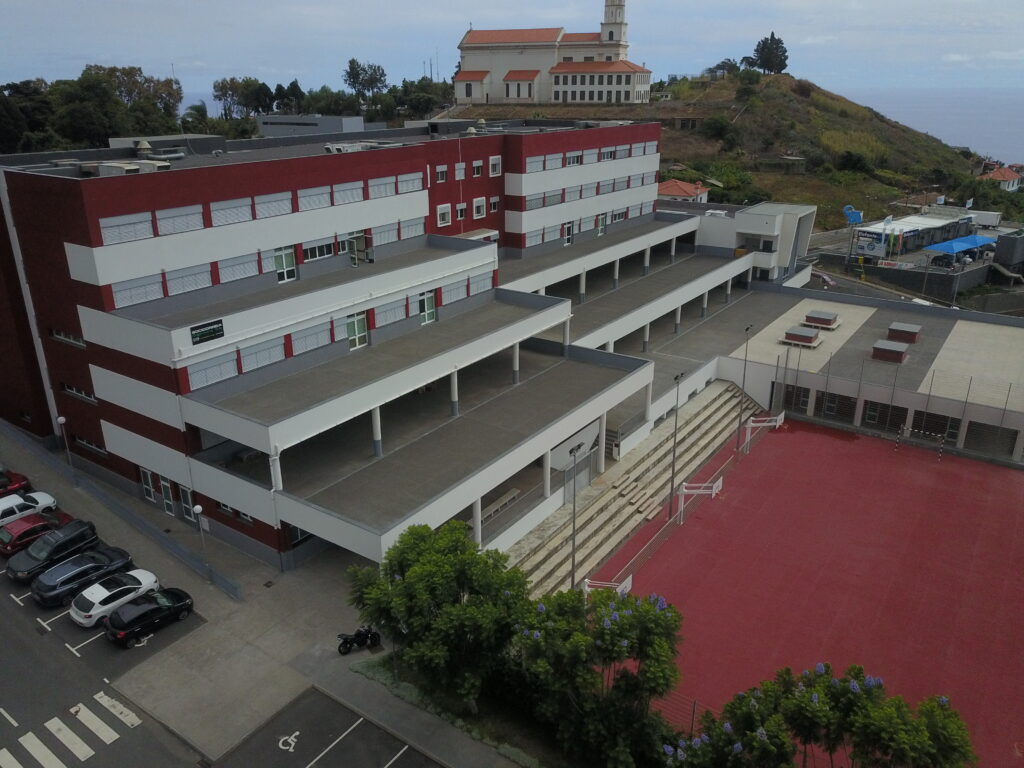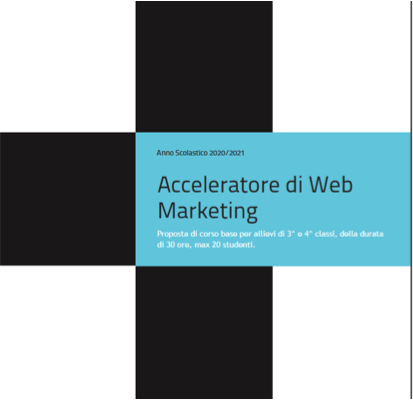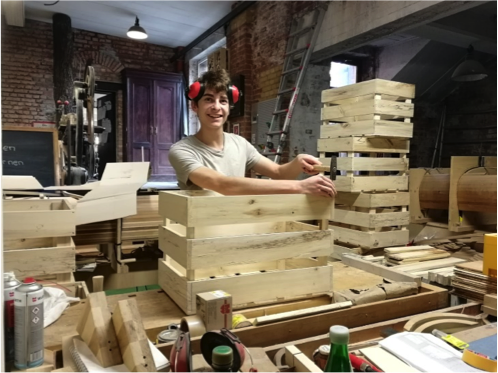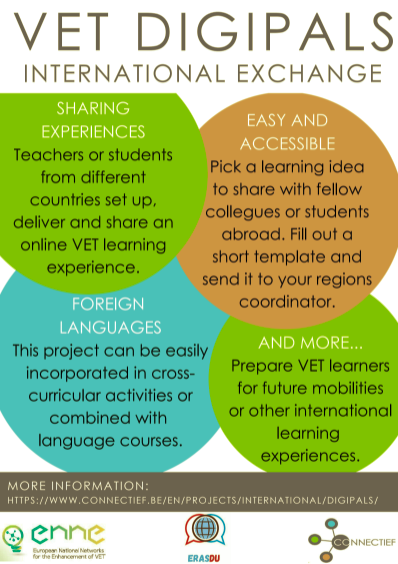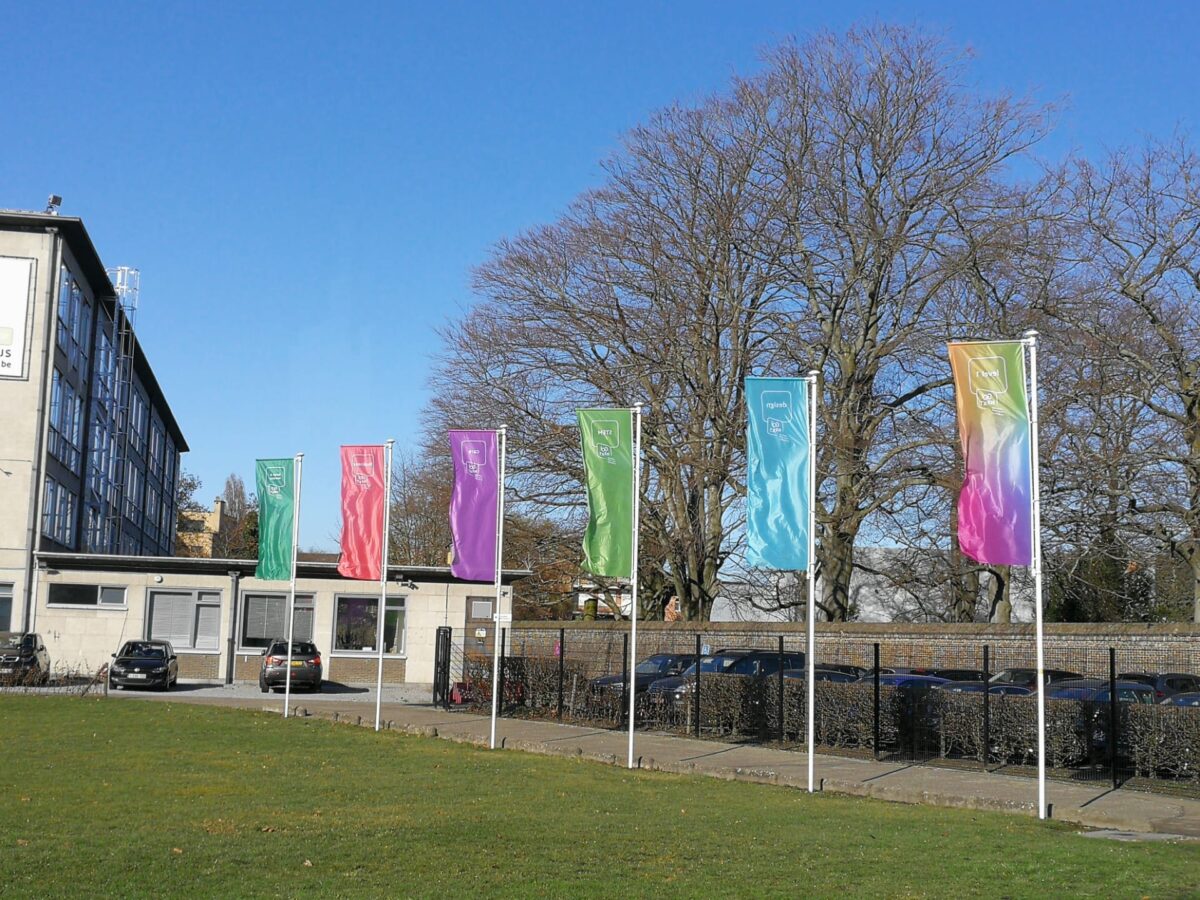International exchange “light”
To share VET learning experiences internationally and digitally with (student) colleagues abroad. Is that possible? And how do you get started?
It can easily be done via the VET DigiPals approach, in a few simple steps:
Step 1. Find the learning experience you want to share
In this step you involve your (fellow) students as much as possible: together you look for a learning experience that you find interesting to share. This can really be anything: a product, an approach or technique, a part or ingredient, an instrument or tool.
Below we give some examples for inspiration:
Students from the 7th year of Childcare at a Flemish school are given the assignment to develop a kamishibay (Japanese storytelling theater), with an accompanying story bag. They present the development process and the results digitally and in French to fellow students in a French-speaking school.
Students from the last year of “Marketing” from a school in Barcelona work out a marketing plan in digital collaboration with and for a Flemish VET-school, involving the students of the school.
Apprentices from the “Traiteur” course from a school in Northern France convert a regional recipe into a dish and share it digitally with Flemish apprentices.
Welders from a school in Rome digitally show how they restore antique metalwork to apprentice welders from a Flemish school who are mainly active in shipbuilding and repair. Then it is the turn of the Flemish welders to share one of their specific arts with the welders from Rome.
Step 2: Briefly introduce your idea to us
You can quickly pass on your idea to us via an online form. In this form we ask for some contact details, the preferred language in which you want to share your idea, and ask the following question: “Which part of your training process do you want to share and with whom (teachers, students, …)? Do you already know how? ”
You can find this form here. Please use Google translate to translate the form. Your answers can be in your native language.
Step 3: We will contact you to support you in the further development of your idea, and to look for a partner school together with you.
We will find out, among other things, how to internationalize the sharing of the learning experience, and support you in looking for and consulting with a foreign partner. In this way a concrete planning is established.
Step 4: Do!
You organize the digital learning sharing experience, together with the foreign partner. We are happy to be there as support and to learn from your experience.
Step 5. You participate in a short evaluation of the experience
We do a short survey of your experience, to learn more from this and to take that knowledge with us in the further development of the VET DigiPals concept.
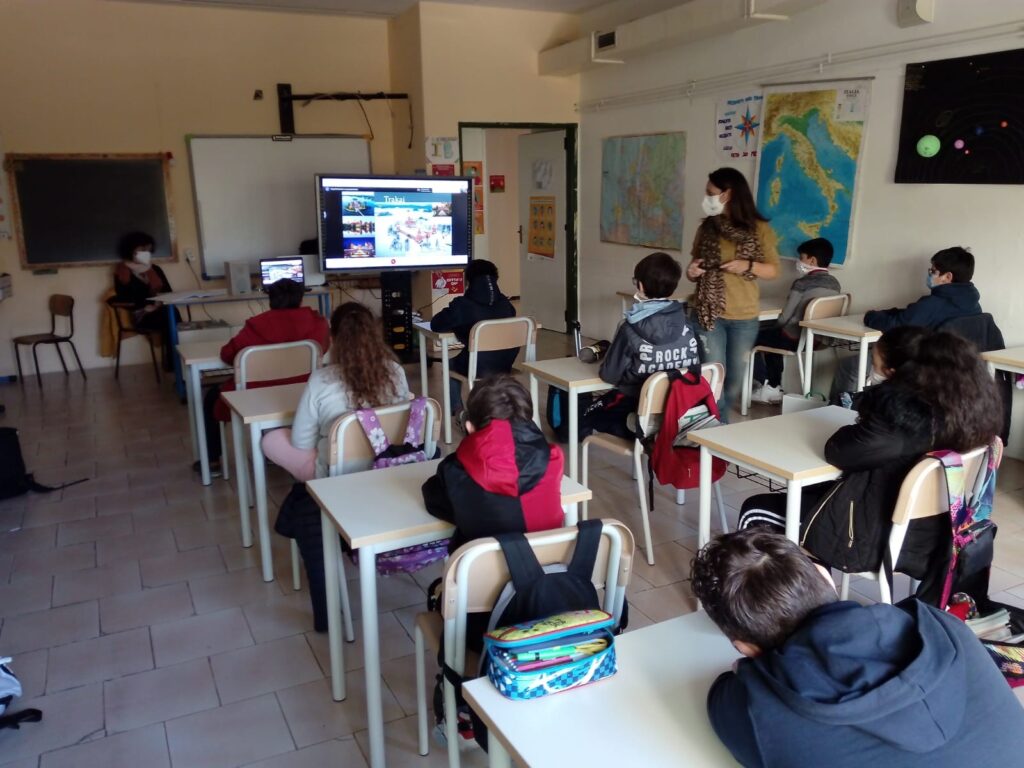
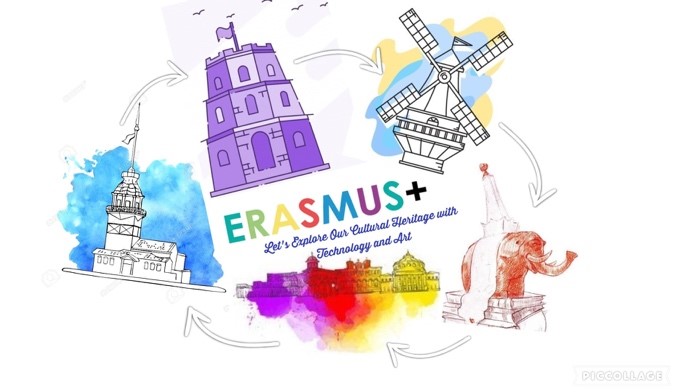
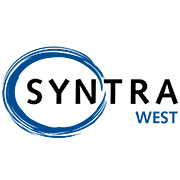
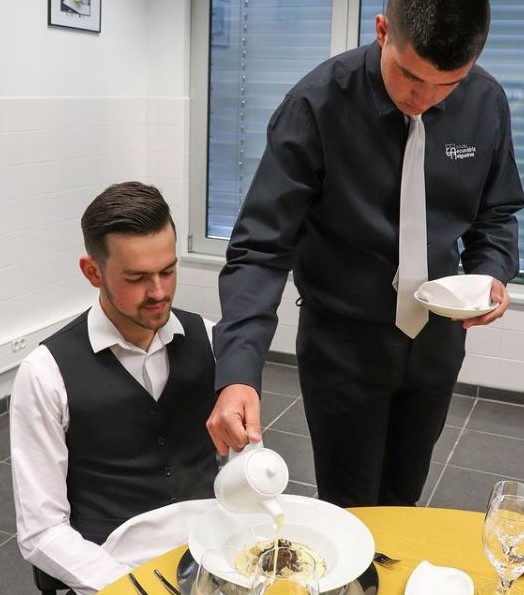
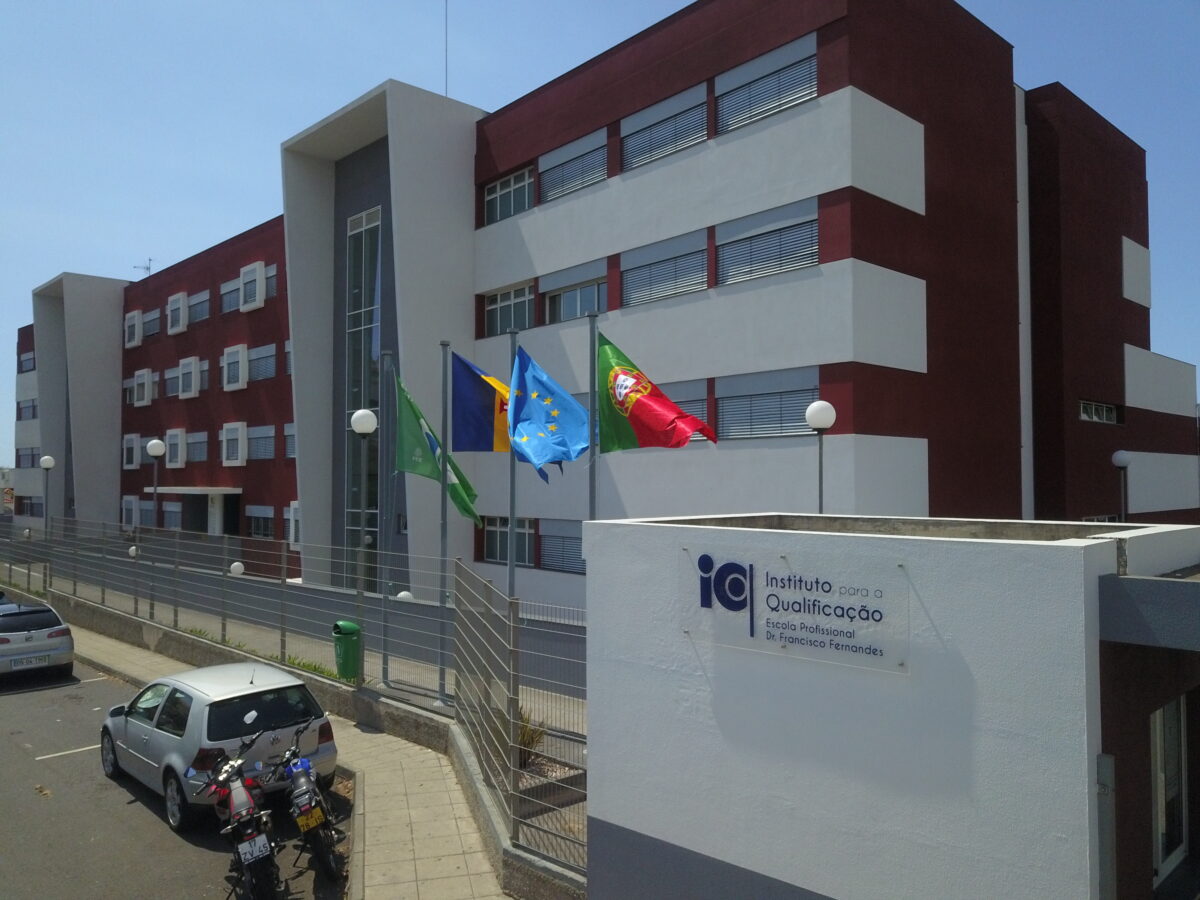
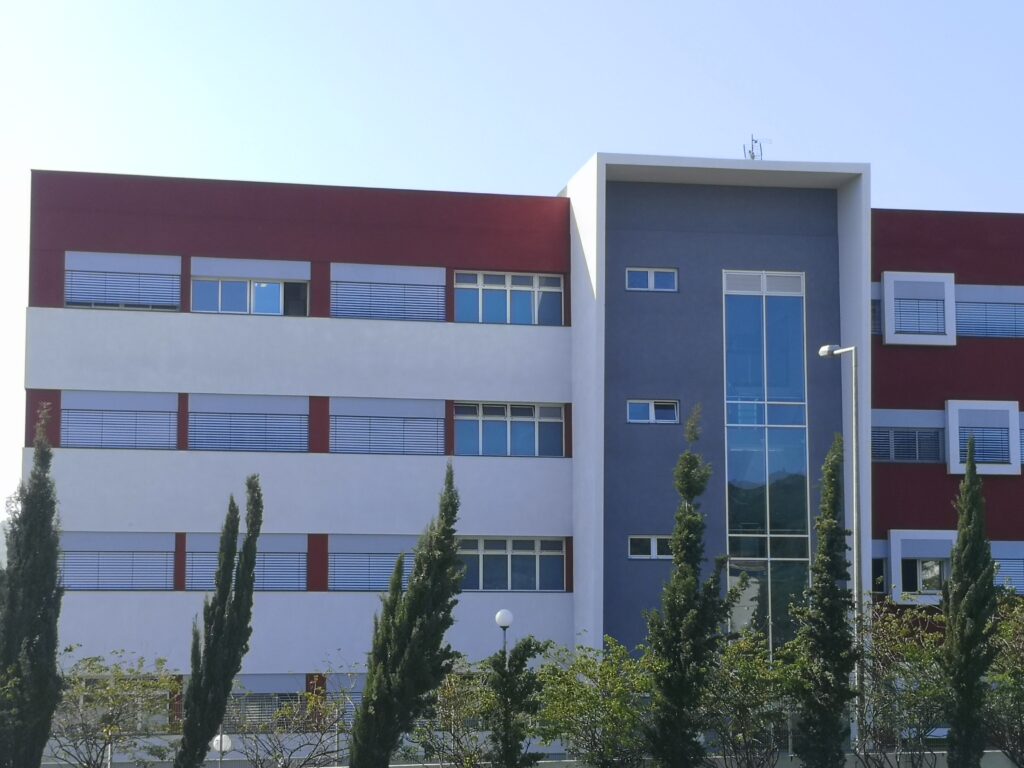 At the moment, FICA consists of a psychologist and four teachers from the Escola Profissional Dr. Francisco Fernandes (
At the moment, FICA consists of a psychologist and four teachers from the Escola Profissional Dr. Francisco Fernandes (